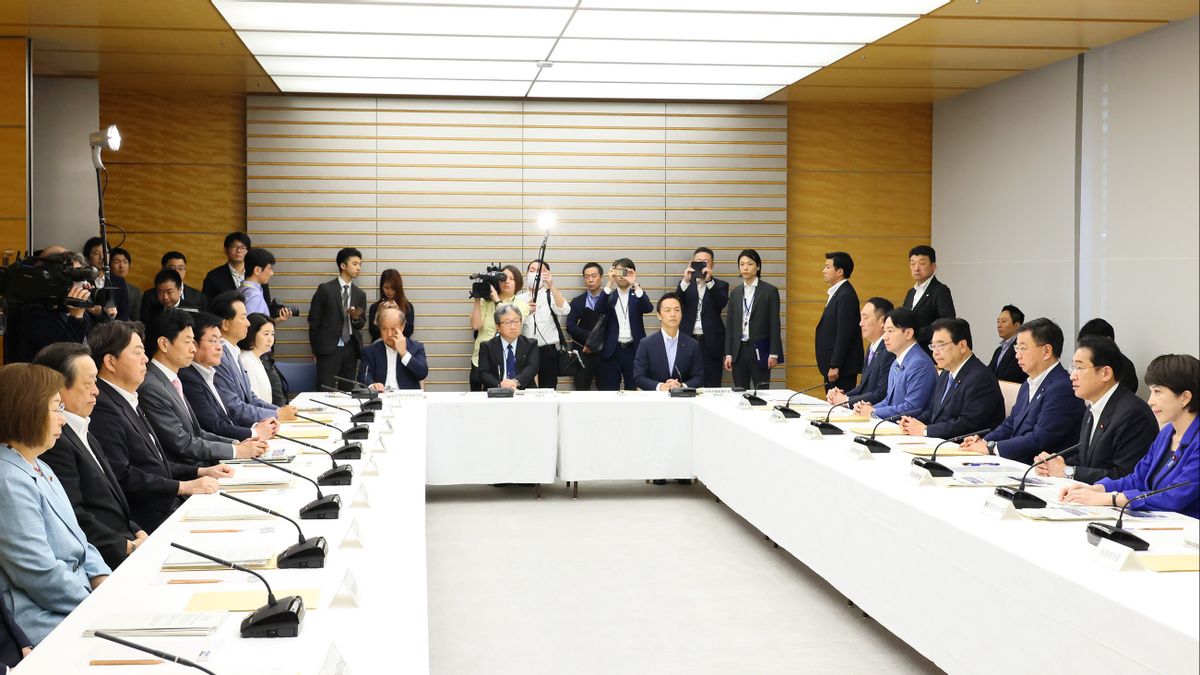JAKARTA - Japan on Tuesday adopted its first space security blueprint to better utilize its borders for defense purposes over the next 10 years, in response to China's and Russia's increasing military use of outer space.
In the roadmap drawn up under the National Security Strategy which was updated in December 2022, the Government of Prime Minister Fumio Kishida also committed to advancing Japan's defense projects by leveraging private sector space technology.
A key pillar of the blueprint is a plan to strengthen information-gathering systems to increase the effectiveness of counterattack capabilities, or attacks on enemy bases, which Japan promised late last year to acquire while maintaining its Constitution against war.
This roadmap was endorsed as Beijing continues to push ahead with its own space development projects, fueling speculation that competition between China and the United States in this domain will intensify. Russia has also developed military-related space capabilities.
However, the Japanese government's apparent attempt to accelerate the integration of the country's defense and civil sectors could trigger a backlash from opposition parties, which have sought to criticize a series of relatively hawkish security policies hammered by PM Kishida's ruling Liberal Democratic Party.
#PMinAction: On June 13, 2023, Prime Minister Kishida held the 28th meeting of the Strategic Headquarters for Space Development at the Prime Minister’s Office. At the meeting, the participants engaged in discussions on the Basic Plan on Space Policy (draft). pic.twitter.com/k3OW3vdwrk
— PM's Office of Japan (@JPN_PMO) June 13, 2023
"In the interest of national security, we will dramatically increase the use of space systems and ensure safe and stable utilization of the domain," PM Kishida said during a Tuesday meeting, launching Kyodo News June 13.
The blueprint says the development of space sector technology has "immediate implications for military advantage," citing as an example the use of data from US and European commercial satellites, to assist Ukraine in military operations in the fight against a Russian invasion.
In addition, the Government of Japan has also expressed concern about the "rapid expansion of the threat" from some countries, such as China, which have significantly improved their information gathering systems in space, as well as developed capabilities to attack satellites.
Regarding its own counter-attack capabilities, Japan promised to increase the speed of information transmission by combining several small satellites and improving visual data interpretation technology using artificial intelligence.
另请阅读:
The blueprint said Japan would increase cooperation with the United States and its allies to defend the satellite, while stressing that the Self-Defense Forces could disrupt other countries' command and information communications systems.
The government also promised to enhance collaboration between the Ministry of Defense and the Japan Aerospace Exploration Agency, in an effort to provide support to private companies involved in the development of important space technologies, the blueprint said.
The English, Chinese, Japanese, Arabic, and French versions are automatically generated by the AI. So there may still be inaccuracies in translating, please always see Indonesian as our main language. (system supported by DigitalSiber.id)


















